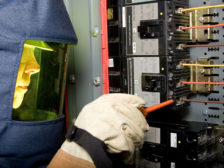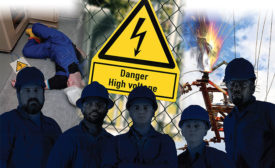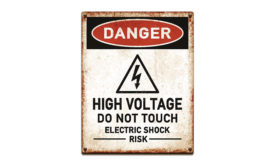Home » Keywords: » NFPA 70 E standard
Items Tagged with 'NFPA 70 E standard'
ARTICLES
Training
IEEE 1584: What to know about your next arc flash analysis
Complex calculations
April 1, 2020
Making sense of NFPA 70E
A proactive approach to maintaining your electrical assets
January 1, 2020
Stay current with PPE safety standards
What you need to know about ASTM F2413, NFPA 2112, NFPA 70E and EU standards
December 4, 2019
NFPA 70E’s focus on preventing human error
All about human performance, error precursors & risk
October 1, 2019
NFPA 70E is one of the most important safety documents
Compliance benefits include improved safety culture and savings increases for employers.
May 1, 2019
2019 top standards- NFPA Voluntary Standards
NFPA 70E electrical safety standard
NFPA-70E®-2018 Standard for Electrical Safety for Employee Workplaces®
January 3, 2019
When you can’t see, smell or hear hazards
Here’s how to improve your arc flash & electrical safety training
December 21, 2018
4 steps for building an AR/FR winter layering system
Start with the basics
December 6, 2018
EVENTS
Sponsored Webinar
10/24/24 to 10/24/25
Contact: Amy Jackson
Hidden Danger in Your Electrical Safety Program
Become a Leader in Safety Culture
Build your knowledge with ISHN, covering key safety, health and industrial hygiene news, products, and trends.
JOIN TODAYCopyright ©2025. All Rights Reserved BNP Media.
Design, CMS, Hosting & Web Development :: ePublishing










